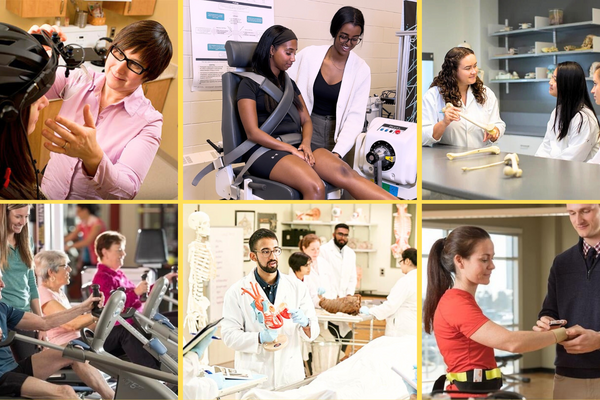
Co-op connections for a stronger community
A new donor-supported program partners Waterloo students with the United Way to make an impact

A new donor-supported program partners Waterloo students with the United Way to make an impact
By Adriann Kennedy University RelationsThe coronavirus pandemic has placed a bright spotlight on the need to collaborate and work together to meet community needs.
It’s also presented a unique set of challenges for Waterloo’s co-operative education students, who set out each term to apply their skills and education to solve real-world problems.
To tackle these issues, Co-operative Education and Experiential Learning launched Co-op for Community for the Winter 2021 work term. The program, largely funded by donor dollars, creates jobs for Waterloo co-op students in not-for-profit organizations struggling to afford talent.
The idea came to life on Giving Tuesday 2020 when Waterloo challenged its alumni and friends to make a donation to an area they’re passionate about. The response was overwhelmingly positive: with the generous support of Waterloo donors, including the Menich Family Challenge Champions, and funding from the Federal government, three co-op students joined the United Way Waterloo Region Communities earlier this year, at no cost to the organization. United Way hired another group of students for the spring term and with continued donor support, the program continues to grow.
For Norah McRae, associate provost, co-operative and experiential education at the University of Waterloo, using experiential learning to give back to the community was a no-brainer.
“Co-op for Community is a way for students to take their skills and energy and apply it to the challenges facing the communities where they live and study,” says McRae. “Regardless of a student’s career path, having the opportunity to work in a not-for-profit can be life changing and help to develop key competencies for the world of work. We’re grateful to the donors who stepped up to get this program off the ground.”
With 129 agencies that have received funding across the region, United Way has been putting the students to work in a variety of ways.
“We have students working on a wide range of things,” says Nancy Bird, senior director, community investment and engagement for United Way Waterloo Region Communities.
“It's not just that more hands are doing the work. It's actually allowing us to get to things we wouldn't otherwise be able to get to. And especially for a small not-for-profit staff, that's a huge benefit, and it just makes such a difference.”
The program is just getting started, but there is an excitement building about what the future can bring. With a diversity of skill sets, Waterloo students bring endless possibilities to local organizations in need.
“In our last agency call, we talked to them about the Co-op for Community program, and they just lit up,” says Joan Fisk, chief executive officer of United Way Waterloo Region Communities. “We talked about what they need and where we can collectively create projects that are impactful for everyone. It might be in web development; it could be in communications, it could be community engagement – it could be many things where staff just don't have the bandwidth inside their organization to make it work.”
It’s not just about what the students can give to the community and learn more about the non-profit world. Both Fisk and Bird are hoping that the co-op terms bring value to the students as well.
Co-op student Delina Temelso, a fourth-year Honors Arts & Business student, reflects on her time with United Way: “This is the first time I’ve worked in a not-for-profit and I feel like I’m finally able to put my skills into action to make a real difference. It’s been shocking how many people are in need.”
Fisk has already reached out to her cohorts in neighbouring regions to talk about the potential for expansion down the road, but for now, she’s looking forward to the day when students can see the impact of their efforts.
“Co-op for me is all about taking diverse and different learning opportunities,” reflects fourth-year co-op student Kissor Nithiananthan. “This experience has given me a new lens to look at things and I’m really appreciative to those who want to fund student experiences like this.”

Read more
Sport and Recreation Management student Diane Choi embarks on co-op term with the Canadian Olympic Committee

Read more
From optometry and pharmacy to public health and therapeutics, Waterloo alumni are powering Canada’s health care sector

Read more
Here are the people and events behind some of this year’s most compelling Waterloo stories
The University of Waterloo acknowledges that much of our work takes place on the traditional territory of the Neutral, Anishinaabeg, and Haudenosaunee peoples. Our main campus is situated on the Haldimand Tract, the land granted to the Six Nations that includes six miles on each side of the Grand River. Our active work toward reconciliation takes place across our campuses through research, learning, teaching, and community building, and is co-ordinated within the Office of Indigenous Relations.